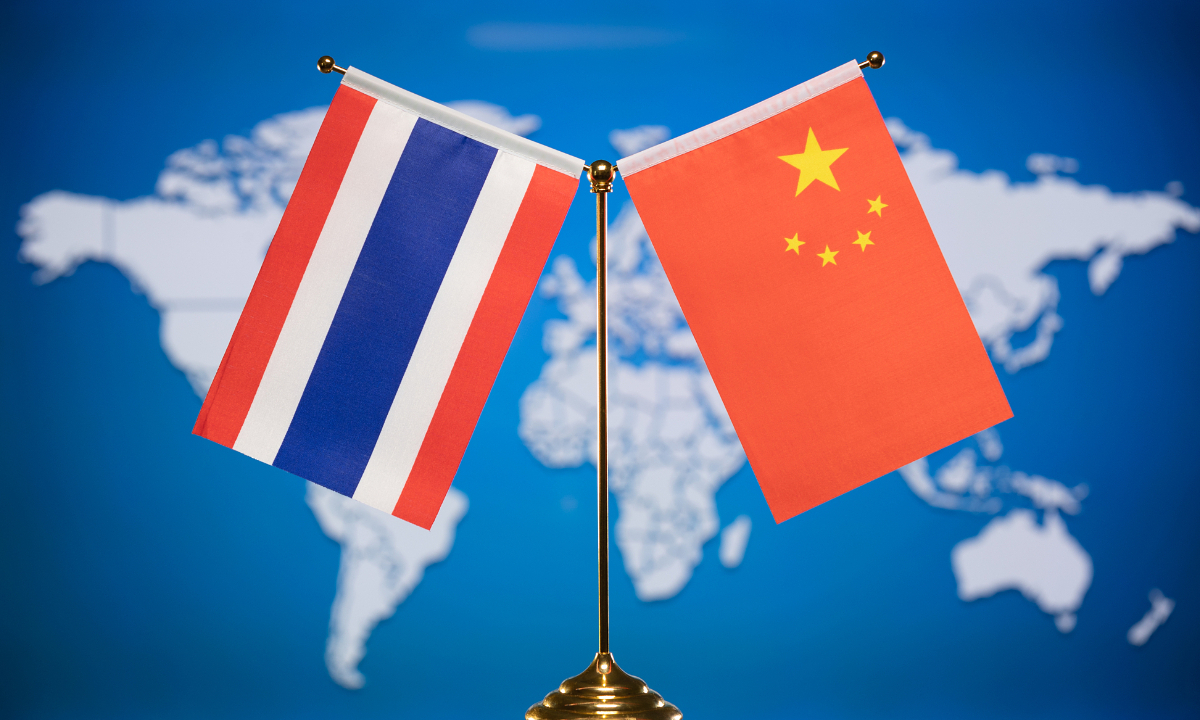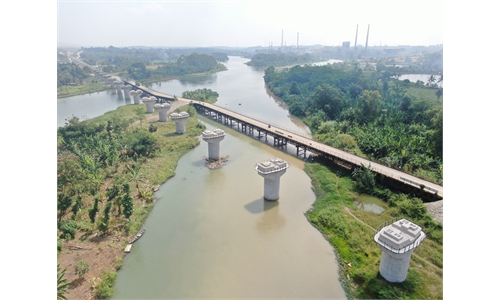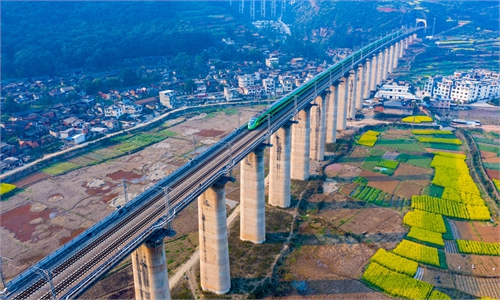China-Laos-Thailand high-speed railway to become backbone infrastructure in enhancing regional connectivity: Thai researcher

China Thailand Photo:VCG
China-Laos-Thailand high-speed railway is expected to play an important role in enhancing regional connectivity, further slashing transportation time and cost from the current level, a senior Thai researcher stated.
Although the project is still under construction, once completed it will become part of the backbone infrastructure for international trade between the two countries, especially for perishable goods such as agricultural produce and high value added items for which time saving and affordable transportation are critical factors to enhance trade and deepen supply chain integration, Nattaporn Triratanasirikul, deputy managing director of Bangkok-based Kasikorn Research Center (KResearch), told the Global Times over the weekend.
China and Thailand on Saturday agreed to build a more stable, prosperous and sustainable China-Thailand community with a shared future, which observers see as a crucial breakthrough that will further enhance already sound bilateral relations to a new, strategic height.
The China-Laos high-speed railway, opened to service in December 2021, has already benefited Thailand, according to Triratanasirikul. The railway has opened a new transportation route that will help cut land transportation costs by approximately 30 percent and save transportation time by roughly 50 percent, as estimated by KResearch.
Total trade volume between Thailand and China via this route has reached 11 billion Thai baht ($307 million) or accounting for 5.3 percent of total cross-border trade between Thailand and China, data from KResearch showed.
Chinese products worth 9.4 billion Thai baht, including fertilizers, automobiles and medical equipment entered the Thai market while Thai exports worth 1.5 billion Thai baht including fruits and, to a lesser extent, computer and electronic products reached China.
Chinese authorities have granted"green lanes" and transportation routes to facilitate export of agricultural products and other perishable goods from Thailand to China via the China-Laos high-speed railway, noted Triratanasirikul.
"We expect that when the China-Laos-Thailand high-speed railway is completed, it will cut transportation costs further and save transportation time by more than 70 percent," Triratanasirikul said.
The enhanced connectivity resulting from the high-speed railway will be realized against the backdrop of deeper economic, trade and investment cooperation between the two countries.
Reflecting the enhanced economic cooperation between Thailand and China, Chinese direct investment in Thailand increased from $720 million in 2020 to $1.14 billion in 2021.
According to data from Chinese customs, bilateral trade surged 33 percent year-on-year, reaching $131.18 billion in 2021.
Chinese electric car makers such as SAIC, Great Wall and BYD have decided to invest to build electric vehicle factories in Thailand and choose Thailand as their production hub in Southeast Asia.
"As the global economy is facing multiple challenges such as tightening monetary policies, elevated inflation and increasing geopolitical tensions, we believe that enhancing economic cooperation between China and Thailand, as well as among ASEAN members through strengthening trade and investment collaboration, while also supporting the establishment of Chinese supply chain in ASEAN should foster regional economic growth," Triratanasirikul stated. "It will perhaps serve as a cushion to any adverse impact from such challenges that we are facing, and probably the ones in the future."


